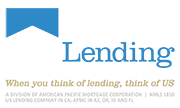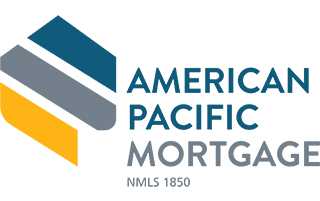Walkthrough Guide: The Qualification Requirements for a Reverse Mortgage
Many folks face the consideration of a reverse mortgage when they get to a point where they need additional cash flow and their current financial status is not providing a desired level. With the reverse mortgage tool, a person can use their home to provide a long-term infusion of monthly and annual cash flow, providing the means to pay for home repairs, travel, boost a monthly budget and more. However, before anyone can enjoy those benefits, they have to meet the requirements for financing. Some are imposed by the lenders themselves and many are required by the government to protect consumers. Below is a detailed explanation.
The General Requirements for Reverse Mortgages
First, a reverse mortgage has to be the primary loan lien on a home involved. Properties with unpaid mortgages are not viable collateral. It is however, possible to use a reverse mortgage to pay off the existing liability and clear the title for the reverse mortgage.
You Must be at Least 62 Years of Age or Older
There is no question an applicant for a reverse mortgage has to be age eligible. All viable borrowers have to be at least 62 years of age or older. This includes all borrowers on the title, not just one of them. The lenders are required to apply the age requirement to the youngest person on the title, not the oldest.
You must own your home
The home needs to be owned with a significant share of equity before it can be used as financing collateral. While there is some variation between lenders, a general rule is that a borrower needs to have at least 60 percent equity in the property.
Your home must be your primary residence
In addition to having title and being old enough, a borrower also needs to be using the property as a primary residence. Vacation homes, second homes and part-time residences don’t qualify. Investment properties are not eligible either, since many times people hold onto them just long enough to see a market rise in value.
You must complete a counseling session with a HUD-approved agency
As a government requirement to make sure that people really understand what they are getting into with a reverse mortgage, borrowers in a reverse mortgage process must attend a counseling session. And not just any provider can be the counselor; the advisor needs to be a HUD-approved agency who follows a specific education program advising would-be borrowers of related risks in a reverse mortgage.
The Home Requirements for Reverse Mortgages
One of the big areas where many folks get hung up pursuing a reverse mortgage involves the very property itself. Not every home is allowable. Many types of properties, while they definitely can be lived in and used as a primary residence, don’t met the minimum requirement status for reverse mortgage rules set by the government. Ineligible properties outright barred from being considered as collateral include:
- Manufactured homes produced prior to June 15, 1976 are ineligible. For those that are produced after June 15, 1976, all FHA requirements must be met for the manufactured home to be eligible.
- Bed & breakfast properties
- Cooperatives
- Working farm properties
In addition, the borrower has to be the title owner, the structure needs to be secured on a permanent foundation, and it has to pass a physical FHA inspection. So, no surprise, many people read the first requirements of title and borrower age, believe they qualify, and then find in an unwelcome surprise that the very home involved is not allowable for financing. A full advisory evaluation by a loan officer before engaging is highly advised to avoid these kinds of problems. And borrowers can’t really get around the requirements by negotiating with lenders; the rules on eligible property are set by the FHA because the agency insures reverse mortgages as a government underwriter.
Single Family Home or a 4-unit Maximum Multiple Family Home
The key type of property that has the most success with reverse mortgage applications tends to be the detached single-family home. There are variations, however, and multi-units are allowable. That said, the 4-unit multiple family home is typically the maximum density allowed.
FHA Requirements for Manufactured Homes
Manufactured homes can be eligible for reverse mortgages. However, these properties do need to meet a number of requirements specific to their structure type. Being owned by title and having a secure foundation applies. But in addition, manufactured homes need to have been built after 1990. Additionally, HUD requires the property to be larger than 400 square feet, and the property has to be taxed as real estate.
HUD-Approved Condominiums
To start, the borrower needs to be living in an FHA-approved condominium. Not every building structure will qualify, and those that are approved are listed on the FHA website. The condominium needs to have at least two units in it, be residential in use, no single resident or investor can own more than 10 percent of the building, no more than 15 percent of the units should be delinquent in their association fees, and at least 35 percent of the condominium needs to be occupied. In short, it’s a hefty list of criteria that needs to be filled or met.
The Financial Requirements for Reverse Mortgages
There are a number of financial hoops borrowers need to take care of personally before even getting started with a loan application. These elements are critical or the loan application is dead on arrival; a loan officer won’t even consider moving forward if they are not confirmed.
Financial Resources
Clearly, the assets and financial portfolio of the borrower has to be sufficient to pay the loan back. This is nothing out of the ordinary; it’s a basic requirement for just about any kind of serious personal loan. Further, the borrower has to be current on all typical liabilities such as home insurance and homeowners association or condominium fees. Additionally, there should be no delinquencies for the home’s property taxes. Finally, the borrower needs to maintain the property and have the means to continue to do so during the life of the loan.
You Can’t be Delinquent on any Federal Debt
Borrowers shouldn’t even try to apply if they have any kind of federal debt issue outstanding. This includes the wide range of income taxes and student loans. Any kind of delinquent federal debt will be flagged during application review and stop the loan process.
Financial Assessment
To ensure that a borrower’s personal status passes all the necessary requirements for solid financial status a financial assessment is required. The loan officer will go through a detailed process of examining all income sources, credit history, and outstanding liabilities on the person as well as the property involved. Checks and reviews will look at but are not limited to:
- Documented forms of income
- Credit behavior
- Assets
- Property expenses and living costs
- Government financial records
Homework, Homework, Homework
Much of the above information, as well as clear examples, are available in detail on the Internet with a bit of research. And any of the major search engines will produce good results with the use of solid terms and words about reverse mortgage requirements. The best part is that the research doesn’t cost a penny for a borrower to perform. Given the huge library of data available, it is possible for every applicant to have a good understanding of the basic requirements before starting an application for a reverse mortgage.
Click Here to Speak With a Specialist
*Reverse mortgages are loans offered to homeowners who are 62 or older who have equity in their homes. The loan programs allow borrowers to defer payment on the loans until they pass away, sell the home, or move out. Homeowners, however, remain responsible for the payment of taxes, insurance, maintenance, and other items. Nonpayment of these items can lead to a default under the loan terms and ultimate loss of the home. FHA insured reverse mortgages have an up front and ongoing cost; ask your loan officer for details. These materials are not from, nor approved by HUD, FHA, or any governing agency.
The views, articles, postings, and other information listed on this website are personal and do not necessarily represent the opinion or the position of American Pacific Mortgage Corporation or US Lending Company.
* For loan examples and more information visit our disclosure page at https://www.uslendingcompany.com/disclosures/





